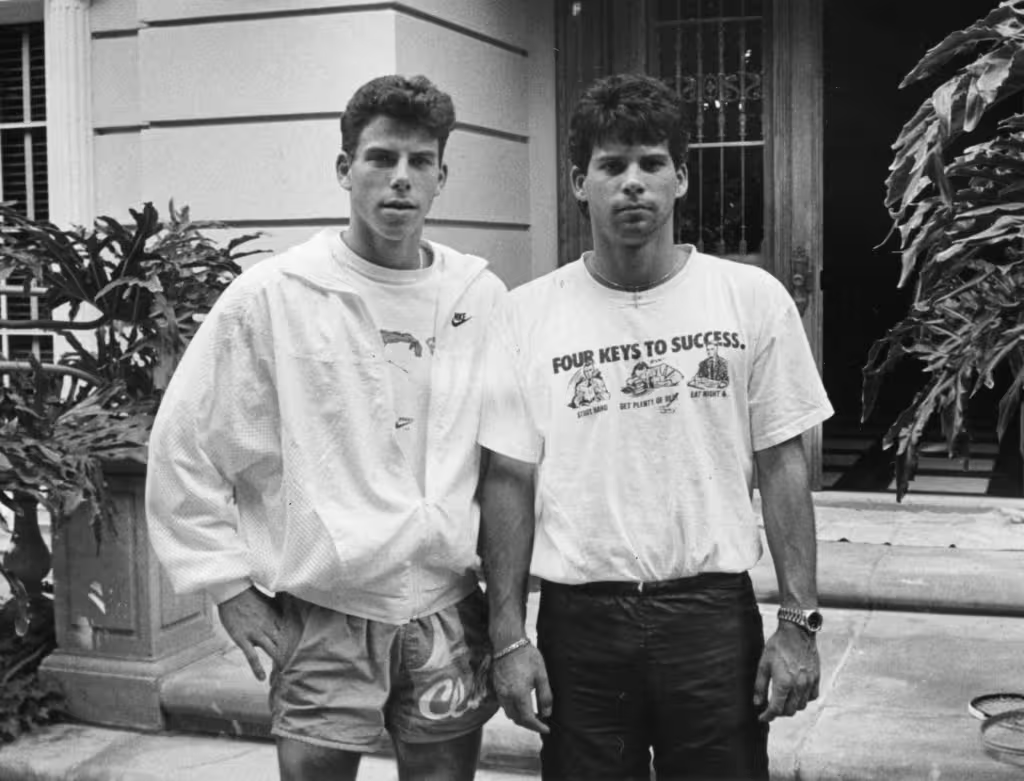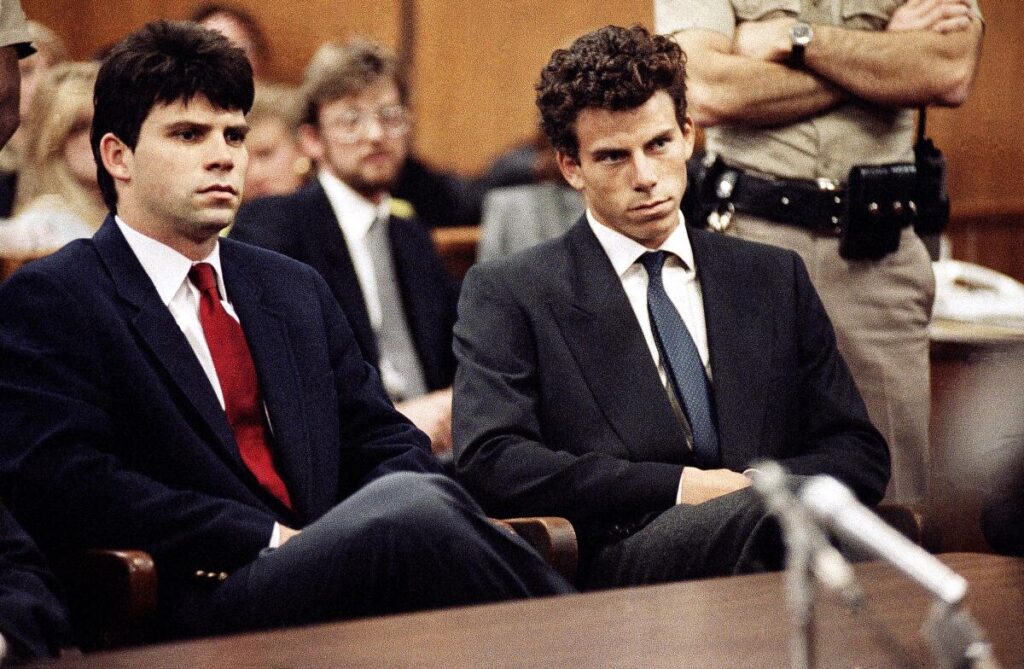Imagine that you had to endure years of sexual, emotional, and physical abuse during your childhood. You were manipulated to believe you had no way out, and any hope you had was violently taken away from you by your parents. After trying to protect yourself, you were humiliated in front of the entire world, and locked away for the rest of your life. This is the reality of Erik and Lyle Menendez, two brothers who at the ages of 18 and 21, murdered their parents on August 20, 1989. Throughout the 1990s, the media portrayed them as “spoiled brats” who killed their parents out of financial greed. The brothers’ defense was that they had endured years of horrific maltreatment, leading them to believe that they had no other options. They were ridiculed in court constantly, and heavily mistreated by the justice system, being convicted of first-degree murder without the possibility of parole in 1996. 34 years after their arrest, social attitudes have changed towards child abuse and male sexual assault awareness. The case has gained traction, leading the Los Angeles District Attorney’s office to conduct a resentencing trial covering new evidence that has been introduced. If the brothers are possibly released from prison soon, what lessons can be learned from their exploitation? For the future, what should be done to right the societal wrongs that have been done?
One thing that can be done is understanding that cases like these are incredibly nuanced, and that abuse shapes the brain tremendously. Joseph Lyle Menendez was born on January 10, 1968, while Erik Galen Menendez was born on November 27, 1970. Josė (Ho-say) Menendez came to the United States in the 1960s with his family, escaping Cuba and becoming a media mogul in the entertainment industry. Mary Louise “Kitty” Andersen married him at a very young age, working as an elementary school teacher for some years before becoming a full-time homemaker. From the moment they were born, both boys were never given any praise or affection. Kitty regularly told them that she regretted their birth, and Josė regularly neglected the children, trying to drown them or placing them on gym bars when they were toddlers. He instilled a very competitive mindset in them, making them wake up at 5 for tennis practice, go to school and continue tennis afterwards, only to finally complete homework around 10 at night.

Due to the stress of being mistreated at home, Lyle started balding at the age of 14. His father was worried about his family’s image, buying him toupees to wear. One night, Kitty and Lyle had an argument, leading her to rip his toupee off in front of his own brother, causing shame and injury. Over the years, the accumulation of stress and shame from their treatment became unbearable for the siblings.
In the summer of 1989, Erik was hoping that going to UCLA in the fall and dorming would be his way out of the misery. However, Josė demanded that he live at home. Erik knew that this decision was made so that Josė could continue to molest him, shattering his dream of freedom. Erik eventually informed Lyle that the molestation was still happening, and Lyle became furious. He confronted Josė, who said that he could do whatever he wanted with his son. While the family was on a fishing trip, both brothers feared for their safety. Josė was powerful enough to kill them, especially since he was furious over the fact that Erik told Lyle. Their paranoia was too much to handle, and the brothers eventually bought shotguns to protect themselves.
On August 20th, Erik and Lyle wanted to go to the movies, but Josė had fiercely opposed this. He ordered that Erik go up to his room, and that he would eventually come upstairs. To Erik, based on his childhood experiences, this meant that he would be molested again in his mind. With both brothers terrified for their safety, they killed their parents by firing their shotguns in the house’s den. When detectives arrived at the scene, they noted how gruesome and hate-filled the killings were.
Erik stated in the documentary “Erik Tells All” that Lyle and him initially planned on confessing, but the police did not arrive initially as they had thought. It was only then that they tried to buy tickets as an alibi, in a spur-of-the-moment decision. When the police arrived, it was only then that they tried to pin the murders on the mafia, an unsurprising theory considering Josė’s business deals. Nevertheless, the two still felt copious amounts of grief over what they had done and the childhood they never had.
Lyle ended up spending large sums of money once his parents died, reflective of his family’s coping mechanism: hiding dark emotions through the facade of money. Erik devoted his time to playing tennis and considered donating some of his inherited money to charity, as per his aunt’s testimony. Erik was severely depressed and having nightmares in the months following his parents’ deaths, and had to confide in someone. His friend Craig Cignarelli told the police that Erik had confessed the crime to him, but upon a new conversation that was wire-tapped, Erik denied his involvement. Later, he admitted his guilt to his therapist named Dr. Oziel. Oziel had been initially hired by Josė, since he was the only therapist willing to break confidentiality and inform him of what his sons spoke about. Oziel eventually told his mistress and patient Judalyon Smyth, who later communicated with the police as she tried to complain about the doctor’s conduct. The brothers were both arrested in 1990.
Their first trials took place during 1993 and 1994, and was one of the first trials to be televised across the country. Judge Stanley Weisberg deemed that Dr. Oziel’s tapes of the brothers’ sessions were admissible evidence, even though there were clear confidentiality breaches. Whenever the defense tried to make objections, he would regularly overrule them, but sustained most of the objections the prosecution made. He would make misogynistic remarks to the defense counsel, and wasn’t tolerant to the boys as they testified to their trauma on the stand, asking them to “speak up louder.” The defense’s case overall had 51 witnesses, including family members, friends, and teachers who could corroborate statements of abuse or domineering personalities from Josė or Kitty. There were many expert witnesses as well, such as Dr. Ann Burgess, a pioneer in serial killer profiling who attested to the brothers’ mental states at the time of the killings.
Sexual abuse was not as understood now as it was in the 1980s and 1990s. Many tv hosts from Jay Leno, David Letterman, and Whoopi Goldberg mocked the boys during the trial. Shows like SNL created a skit based on the court recordings, ridiculing the brothers for crying on the stand. The media at the time portrayed them as men who murdered their parents for money, ignoring the significant testimony the jury was hearing about their abusive childhoods, and perpetuating stereotypes that only hurt child sexual assault victims.

The first trial ended in a hung jury who could not agree on the brothers’ fate. The women in the jury were largely empathetic to their struggle, but most of the men did not believe a man or boy could be raped. In the second trial that took place from 1995 to 1996, Judge Weisberg resided again over the case, and it wasn’t televised. The childhood evidence was no longer admissible, so their charges could no longer be voluntary manslaughter or imperfect self-defense anymore, but instead life in prison without parole or the death penalty. Erik was left to testify, as prosecutor David Conn bullied and derided him. Erik and Lyle were convicted of first-degree murder, and were sentenced to life in prison without the possibility of parole. Even worse, the brothers were then separated for 22 years until 2018. This was despite a Barbara Walters interview where they pleaded to be kept together and expert opinions who stated that the brothers were no threat, and that they relied on each other for support.
In recent years, footage from the first trial has made waves on social media platforms such as Tiktok and Youtube. Due to more awareness around such heavy issues, people have become more sympathetic to the plight of the brothers, assessing how their crime, answers on the stand, and body language were reflective of their childhood trauma. Many television shows and documentaries have been made on the murders, such as “Erik Tells All”, told from Erik’s perspective himself, and “Law and Order: True Crime.” One of the biggest reasons for the resurgence in interest in the case is a show from Netflix called “Monsters: The Lyle and Erik Menendez Story.” Created by Ryan Murphy, the dramatization became a major hit on the platform, retaining a #1 spot globally. The series has been heavily criticized on the other hand, for its inaccuracy and its false, incestuous portrayal of the brothers. Ryan Murphy did not consult with Erik, Lyle, or their families whilst writing the show, and all of them have denounced its depictions.
Recently, a letter that Erik wrote in the late ‘80s to his cousin Andy Cano has been unearthed. Cano unfortunately passed in 2003, and this writing had not been found before the first and second trials. A-then teenage Erik describes how he is afraid of his father molesting him again, and how he wishes he could speak to his mother about his trepidations. Additionally, a former member of the band the Menudo Boys, a band managed by Josė at one point, revealed that he had been raped by Josė in the 1980s. This evidence, alongside public advocacy, has allowed the case to be reopened, and could potentially signal their release after almost 35 years. On November 24th, a hearing will take place to see if the case will be continued, and another will occur on December 11th.

